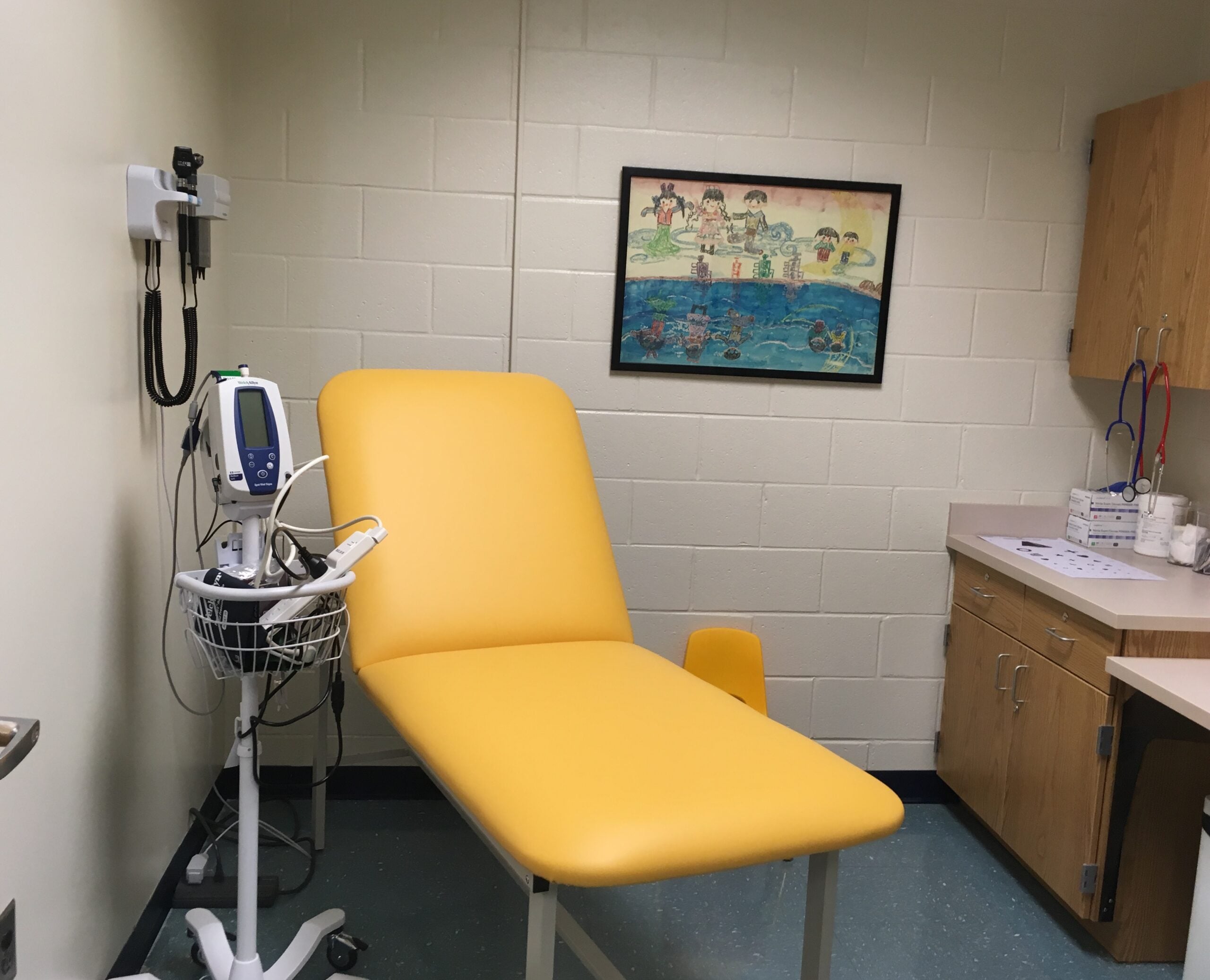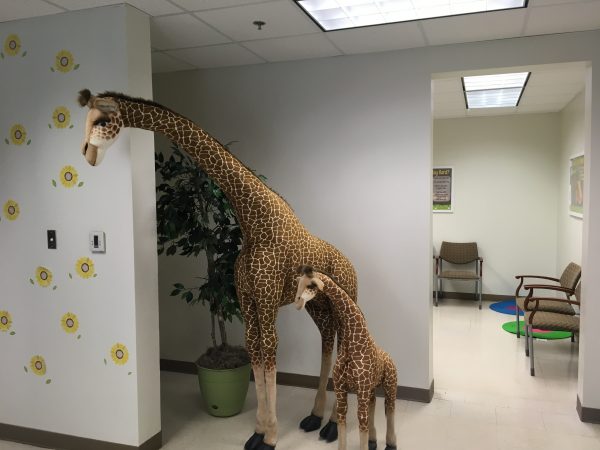School-based Health Clinics Fill The Gap in ‘Medical Deserts’

Students can get checkups, immunizations, and dental care at the clinic at Toomer.
Martha Dalton / WABE
It’s commonly understood: if kids are sick, they can’t learn well. But children in poor communities often lack access to medical care. So, kids either go to school sick or stay home until their parents can take them to the doctor. Now, Atlanta Public Schools is trying to fill the void by opening health clinics at five schools
All five are full-service medical centers, with doctors, nurses and dentists on staff. Kids can get immunizations, checkups and teeth cleanings. District Superintendent Meria Carstarphen said the idea is to maximize the amount of time a child spends in school.
“Kids can’t come to school if they don’t feel well,” Carstarphen said at a ribbon cutting for Toomer Elementary School’s health center last spring. “Absenteeism is a really serious issue. So, our job is to try to figure out ways to circumvent any reason for a kid not to come to school.”
APS opened its fifth clinic last spring at Fred A. Toomer Elementary School in Edgewood. The majority of families at the school live below the poverty line. In 2017, more than a third of kids at Toomer were absent for more than five days during the year. State data show students who are absent that much tend to struggle academically. Carstarphen said in poor communities, even a minor illness can be a big problem for families.
“What’ll happen is a kid will have a toothache, they feel too sick to go to school, mom still needs three days to get them to the doctor,” she said. “Then they keep them at home, and they’re not going to school. Whereas, they can come here, get the tooth fixed, and go right back to class.”
The clinics don’t just serve students. All five are open to the communities where the schools are located. These are areas Carstarphen calls ‘medical deserts,’ where there aren’t enough healthcare providers. Whitefoord, Inc. operates the clinic at Toomer as well as two others in APS.

Increasing ‘Seat Time’
Dr. Belise Livingston-Burns is a pediatrician at the HEALing (Health, Education, Assessment, Leadership) Community Center, a health clinic based at Hollis Innovation Academy on Atlanta’s west side. She commonly treats kids for injuries related to falls, stomach bugs and asthma attacks. According to The Asthma and Allergy Foundation of America, asthma is the number one reason kids miss school nationwide. Being able to treat a child’s asthma attack on campus makes a big difference, Livingston-Burns said.
“If the parent had to come and pick them up, they could go to their primary care physician or urgent care and maybe have to sit for quite a while to get seen, and then by that time, most of the school day is over,” she said.
Instead, Livingston-Burns can treat the child and send him back to class if they’re stable.
“If you’re not feeling well, or always feeling sick, you’re just not going to do as well in class, and you’re going to have less seat time,” she said. “So, having us here to help facilitate that for the parents, definitely helps improve their health outcomes, as well as increase their seat time.”
Because it’s open to the community, football players from Washington High School have gone to the clinic to get their required physicals before the season starts.
“The coaches were very happy about that because some of their players they couldn’t get in other places,” Livingston-Burns said. “So having that option right here in the school was a huge benefit.”
The Dobbs Foundation and the Chick-fil-A Foundation funded the clinic’s build-out.
Removing the Stigma
In addition to physical health care, the center also offers mental health services through a partnership with Chris 180. Jessica Maddox is a licensed social worker who counsels kids referred to her through Hollis’s clinic. She said many of them have experienced trauma, which can affect their academic progress.
“They’re usually behind in reading, math,” Maddox said. “There’s a lot of developmental delays, emotional delays, so they do have a harder time self-soothing. So, we provide the training on that for parents, teachers, and the kids.”
There is a stigma around mental health services, Maddox said. This is her third year at Hollis, and she said families were skeptical the first year. So, she made sure she was visible.
“I greet all the families that are in the clinic so that when they’re coming in I talk to them, they ask me questions about mental health, and they really are starting to trust me, and know that I’m here to help them with whatever they need,” Maddox said.
Families also warm up to counseling services once they see the results, Maddox said.
“We had one kid who was struggling, and then he got counseling and tested for gifted,” she said. “And they thought he should’ve been held back.”
That doesn’t mean every kid will qualify for the gifted program. However, Atlanta hopes providing access to health care will at least help level the playing field.
Listen to a national version of this story here.
A note of disclosure: The Atlanta Board of Education holds WABE’s broadcast license.








